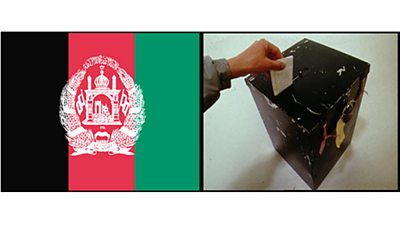Downloads
Publication date: April 2013
Summary
- Participants do not feel that the Afghan government listens to them. There is a perception that those in power only look after their own interests.
- The mechanisms of accountability in Afghanistan are perceived to be nascent, corrupt or under the influence of the powerful. The number of media outlets in Afghanistan has increased markedly, but they have not as yet taken on the role of watchdog. Voting as a concept is generally understood but it is perceived to fail in delivering change. Political parties were perceived only to look to their own interests.
- Corruption is seen as a considerable barrier to Afghans accessing services. Participants’ actual experience of corruption, such as bribery, needing an intermediary, or nepotism, meant that they were unable to access government services. This, in turn, created a barrier that separated the government from its citizens, which led to an avoidance of the government as much as possible.
Context
���˿��� Media Action currently works on governance programming in Afghanistan and a key strand of this is accountability. ���˿��� Media Action has divided accountability into three parts:
- Answerability: the obligation to answer questions regarding decisions and actions
- Enforceability: the availability and application of penalties or consequences (for example investigations, inspections, audits and sanction) for failing to answer accountability claims
- Responsiveness: improved access and quality of services and consequently better development outcomes.
There is a perceived lack of accountability in Afghanistan despite the presence of mechanisms designed to enforce it. These issues live alongside a very active insurgency that particularly affects the south and east of the country.
The project
���˿��� Media Action, funded by the UK’s Department for International Development, seeks to address the lack of an inclusive and critical platform. In a partnership with Afghanistan’s state broadcaster, Radio Television Afghanistan (RTA), the project produces a series of multimedia national conversation debate programmes. These debate programmes, called Open Jirga (jirga means assembly in Afghan languages), engage the public and decision-makers in constructive dialogue on a wide range of governance issues, and air on TV, radio and online using RTA and ���˿��� World Service platforms.
Research methodology
The research consisted of 192 in-depth interviews across genders, urban and rural areas, and age groups (18–30 and 31–55) as well as ���˿��� listeners and non-listeners. These were conducted in the broadcast areas across the Kunduz, Wardak, Uruzgan, Nangarhar, Nimroz and Badakshan Provinces. The research took into account the main ethnicities within Afghanistan (Pashtuns and Tajiks) as well as some minority groups such as the Baluch and Uzbeks, and covered both Pashtu and Dari speakers.
Findings
Answerability: Participants did not feel that the Afghan government listened to them. While participants were aware of the structure of government, and how and at what level to approach it (particularly regarding local government), they had little faith in the government listening to them. Some expressed their beliefs that those in power were the elite who only looked to their own interests, and that they did not care about the concerns of ordinary Afghans because they did not have to.
“Democracy is where people can criticise the government’s work and the government has to listen and consider the public’s comments. But it is not truly in our country – it is just imaginary.” Male, 18–64.
Enforceability: The mechanisms of accountability in Afghanistan are perceived to be nascent, corrupt or under the influence of the powerful. The media is not perceived as fulfilling its "watchdog" role. While there are many stations and channels, some support the interests of the powerful themselves and generally there is little in the way of public debate. Very little reference was made to voting as a means of accountability. Generally, voting as a principle was seen as a good thing, but the practice itself did not lead to any visible change. Some expressed the sense that those in power carried on regardless. Parliament was not regarded as holding the government to account; rather all politicians were seen as part of the same self-interested group in power. Political parties were also seen as a barrier to governance, as there were too many parties and this was seen by some as restricting the government from doing its work.
“The politicians say that they are going to serve Afghanistan but when they win an election they don’t care and they look for their own benefit.” Female, 18–64.
Responsiveness: While some participants noted an increase in access to services since the fall of the Taliban Regime, the majority saw official corruption as a considerable barrier. The overwhelming majority of participants viewed the Afghan government as corrupt. Many participants were able to cite experiences of local government corruption, including local government departments, the police and the judiciary. People were asked for bribes by officials – even in the form of “tea-money” for a clerk. If they did not cooperate they faced very long delays for their paperwork or were even denied the service. Many participants were also frustrated that those who knew influential people were able to have their work completed first by a government department. Nepotism was seen as another injustice. Participants frequently commented that at local and central levels, those in power only gave government positions to their friends and family.
“The current condition of Afghanistan is not good. Government offices are full of corruption and we can’t have our rights.” Male, 18–64.
Implications
It is recommended that future programmes focus on the issue of accountability in Afghanistan. The areas covered could include the lack of voice, the failing of accountability mechanisms and the barrier between the people and their government caused by corruption. Corruption should be viewed as a local-level issue that affects how national government is perceived.
